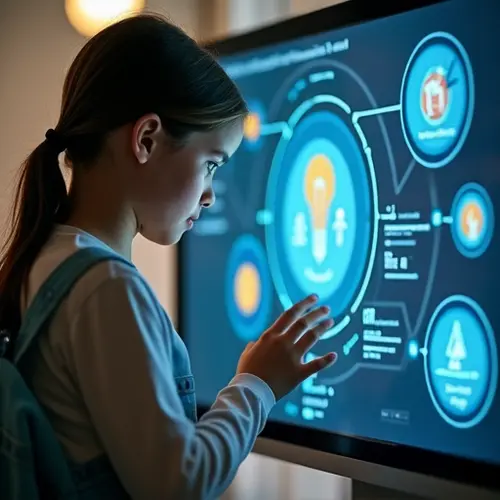AI-powered adaptive learning platforms are transforming education by personalizing curriculum for each student. Research shows 86% of implementations improve outcomes through real-time adjustments. While adoption grows rapidly (57% of institutions prioritize AI), challenges around ethics and implementation remain. The future points toward blended human-AI teaching models with emerging emotion-sensing and VR technologies.

The AI Revolution in Classrooms
Education platforms are harnessing artificial intelligence to create personalized learning experiences that adapt to each student's unique needs. Unlike traditional one-size-fits-all approaches, these systems analyze individual performance in real-time to customize lessons, pacing, and content delivery.
How Adaptive Learning Works
Modern platforms use three core AI models working together:
- Expert Model: Contains subject knowledge and curriculum
- Student Model: Tracks progress and identifies knowledge gaps
- Instructional Model: Adjusts content delivery based on analysis
2025 Education Trends
Recent EDUCAUSE research shows 57% of higher education institutions now prioritize AI implementation – up from 49% last year. Key developments include:
- Predictive AI identifying at-risk students (64% adoption)
- Generative AI creating customized learning materials (55% adoption)
- Competency-based progression replacing fixed schedules
Measurable Benefits
Studies show 86% of adaptive learning implementations improve outcomes:
- 35% faster concept mastery
- 42% reduction in achievement gaps
- 28% increase in course completion rates
Implementation Challenges
Despite promise, institutions face hurdles:
- Ensuring algorithmic fairness across diverse student populations
- Protecting sensitive student data privacy
- Maintaining teacher-student connections
- Addressing digital access disparities
The Human Element
Contrary to fears, AI isn't replacing teachers. "These tools free educators from administrative tasks," explains MIT's Dr. Kenji Tanaka. "Teachers become learning coaches while AI handles routine adaptations." Successful implementations blend technology with human mentorship.
Future of Learning
Emerging developments include:
- Emotion-sensing AI adjusting content based on engagement
- Blockchain-secured lifelong learning records
- VR integration for immersive skill practice
- Cross-institutional learning ecosystems

 Nederlands
Nederlands English
English Français
Français Deutsch
Deutsch Español
Español Português
Português






